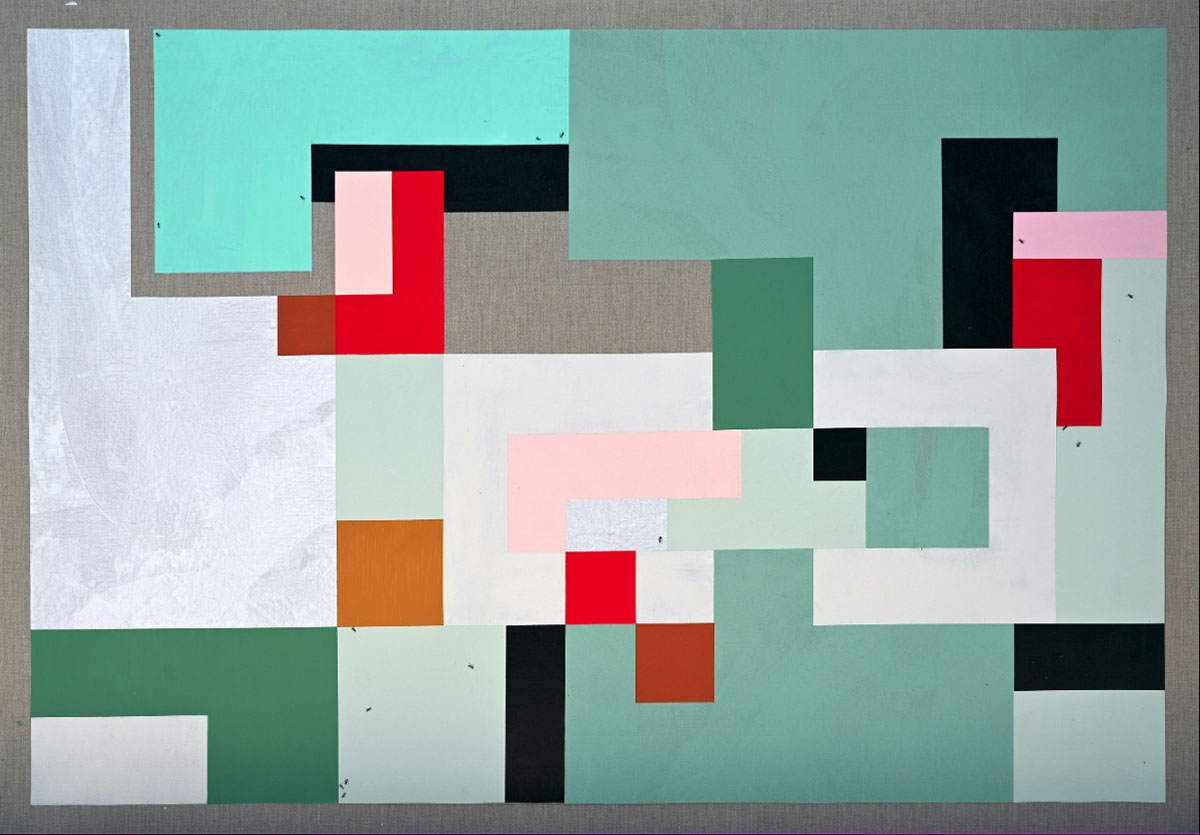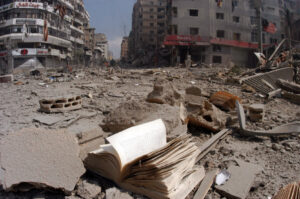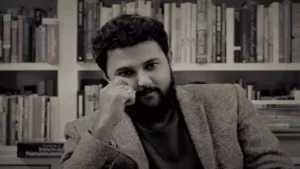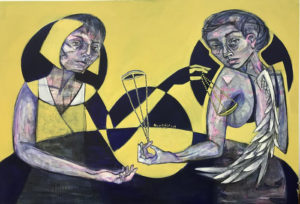An original short play by playwright and theatre maker Mona Mansour — “a short dark confession, in a time of catastrophe.”
A woman in her 40s addresses us. She is Lebanese-American, Arab-American, take your pick. She is in a panic of some sort.
SHE
So you realize what you’ve done is you’ve lied.
You realize that you told her that your family was in the midst of this catastrophe.
You weren’t supposed to be texting her at all.
Your therapist and your girls,
your posse,
they all forbade you. Nothing good will come of it.
She left you. She left. She left.
But somehow there you were, texting.
You both said “Hi” at the same time,
and you took this as a miracle, something that solidified your belief that no matter what, you two were connected on a quantum level.
You knew you shouldn’t have been talking at all,
as you are now the one who is deadass alone
and she is likely no more than five feet away from the basic white bitch she left you for.
But people do things they shouldn’t.
In a moment of grief that was — well it’s hard to tell what the grief is these days, exactly, what the root of it at any given moment — but in a moment of grief you said, And I’m so worried about my family over there.
And suddenly everything changed.
Somehow that shook her out of her new overwhelming love for this new woman
and
she decided to move back in.
She moved back in.
And then you were relieved.
Order was restored. Forks became “our forks” again. Groceries. Things fell into place.
But what she thinks is happening is not happening.
And you let it go because she moved back in.
She left the woman that she left you for, so hey it’s a lesbian quilting circle. And now — you’re doing all that you were supposed to be doing before this terrible thing happened between the two of you, which is to say you’re actually getting to know each other, and you know, the practice of intentionally listening and all that, blah blah —
And you love this person.
But you fucking lied.
Your cousins aren’t packing up. They are not under immediate threat. They are fine.
They are traumatized, sure, but as per usual. Maybe a bit more?
A cousin sold his restaurant in California and with the money from the sale, moved back to a village near the border, Aalma ech Chaab. Where his wife is from. Basically everyone in the village has left, except this woman’s family. But the cousin felt he owed his wife a return to homeland, and so maybe a year ago, they built a house on the family property. And before they had a chance to move in, the house got hit twice: once by missiles from Israel, and once by missiles from Iran, which were on their way to Israel.
Hit twice, once by south and once by north.
So now the house is halfway destroyed. Not fully. But like…
And the conversation is, should he pay to have it demolished, which is complicated because no one has money, or should he wait for the next go-round of bombs to finish it off?
That would be the cheapest option.
But no one’s building anything now because there’s smoke filling the air, and anyone with an apartment in Beirut has grabbed their things and moved there for the foreseeable.
So no it’s not dire.
But of course a few hours away (a day’s drive, if you could drive it) it’s dire. Beyond dire. Beyond comprehension. And maybe that’s just what made you bring back this person.
And now she is in the next room — you got her back!
But why did she come back?
Because she realized she loved you?
Or — she wants some proximity to some center of the tragedy…?
And you
are not sure who you actually are in this world because you lied,
you let her misunderstand.
Your family is adjacent to the catastrophe, but it’s the common, everyday adjacent-ness. Nothing special.
Then you think, you are a liar. This is just true.
But is your lying morally defensible because those other people have lied about worse things? The person who lied about seeing pictures of beheaded children he never saw — that one? And all his people? All the liars?
And now, what you realize you’re doing is comparing your own morality to that of a war criminal.
And that is either something all of us should be doing,
or maybe just the war criminals should be doing.

















![Ali Cherri’s show at Marseille’s [mac] Is Watching You](https://themarkaz.org/wp-content/uploads/2025/09/Ali-Cherri-22Les-Veilleurs22-at-the-mac-Musee-dart-contemporain-de-Marseille-photo-Gregoire-Edouard-Ville-de-Marseille-300x200.jpg)


































































































